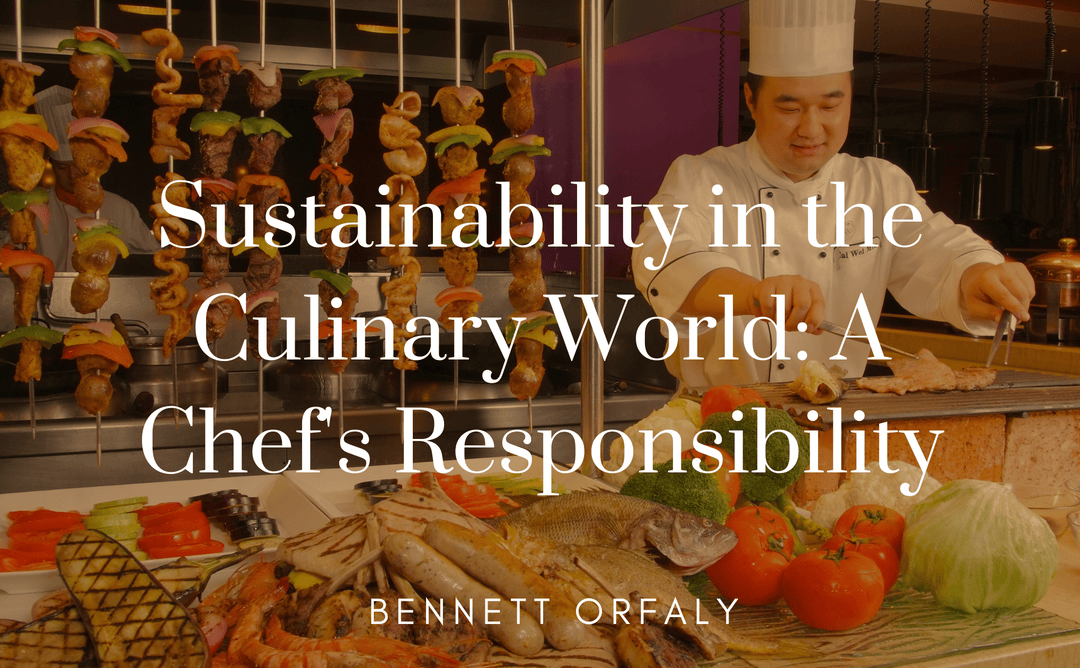Introduction
As awareness of environmental issues grows, sustainability has become a critical consideration in the culinary industry. Chefs play a significant role in promoting sustainable practices, from sourcing ingredients to reducing food waste. This blog explores the importance of sustainability in the culinary world and offers practical strategies for chefs to embrace eco-friendly practices in their kitchens.
The Importance of Sustainability in Cooking
Sustainability in the culinary world encompasses various practices aimed at minimizing environmental impact and promoting ethical sourcing. Chefs have the power to influence consumer behavior and encourage a shift towards more responsible food choices.
By prioritizing sustainability, chefs can help combat climate change, preserve biodiversity, and support local economies. Moreover, incorporating sustainable practices into their cooking can enhance the quality and flavor of dishes, as fresh, local ingredients often yield better results.
Sourcing Local and Seasonal Ingredients
One of the most effective ways chefs can promote sustainability is by sourcing local and seasonal ingredients. Purchasing produce from local farmers and markets reduces the carbon footprint associated with transportation and supports the local economy.
Seasonal ingredients are often fresher and more flavorful, allowing chefs to create dishes that highlight the best of what each season has to offer. By changing menus based on seasonal availability, chefs can keep their offerings fresh and exciting while also practicing sustainability.
Reducing Food Waste
Food waste is a significant issue in the culinary industry, contributing to environmental problems and economic loss. Chefs can take proactive steps to minimize waste in their kitchens.
Strategies for reducing food waste include:
- Menu Planning: Thoughtful menu design can help minimize excess inventory and reduce spoilage.
- Utilizing Scraps: Chefs can creatively use vegetable scraps, bones, and trimmings to make stocks, sauces, and garnishes, ensuring that nothing goes to waste.
- Composting: Implementing a composting program for food scraps can divert waste from landfills and create nutrient-rich soil for local gardens.
Educating Staff and Diners
Sustainability is a collective effort that involves not only chefs but also kitchen staff and diners. Chefs should educate their teams about the importance of sustainable practices and encourage them to adopt eco-friendly habits in the kitchen.
Moreover, chefs can engage diners by sharing information about the sourcing of ingredients and the importance of sustainability. Highlighting sustainable practices on menus and during dining experiences can inspire diners to make more environmentally conscious choices.
Collaborating with Sustainable Suppliers
Partnering with suppliers committed to sustainable practices is another essential aspect of promoting sustainability in the culinary world. Chefs should seek out vendors who prioritize ethical sourcing, organic farming, and environmentally friendly production methods.
Building relationships with sustainable suppliers not only supports the environment but also enhances the quality of ingredients used in the kitchen. Chefs can feel proud knowing they are contributing to a healthier planet while delivering exceptional culinary experiences to their diners.
Conclusion
Sustainability is a vital consideration for chefs looking to make a positive impact in the culinary world. By sourcing local and seasonal ingredients, reducing food waste, educating staff and diners, and collaborating with sustainable suppliers, chefs can embrace their responsibility to promote eco-friendly practices in their kitchens. As the culinary industry continues to evolve, sustainability will remain a key factor in shaping the future of cooking, and chefs have the power to lead the way toward a more sustainable and ethical food system.

